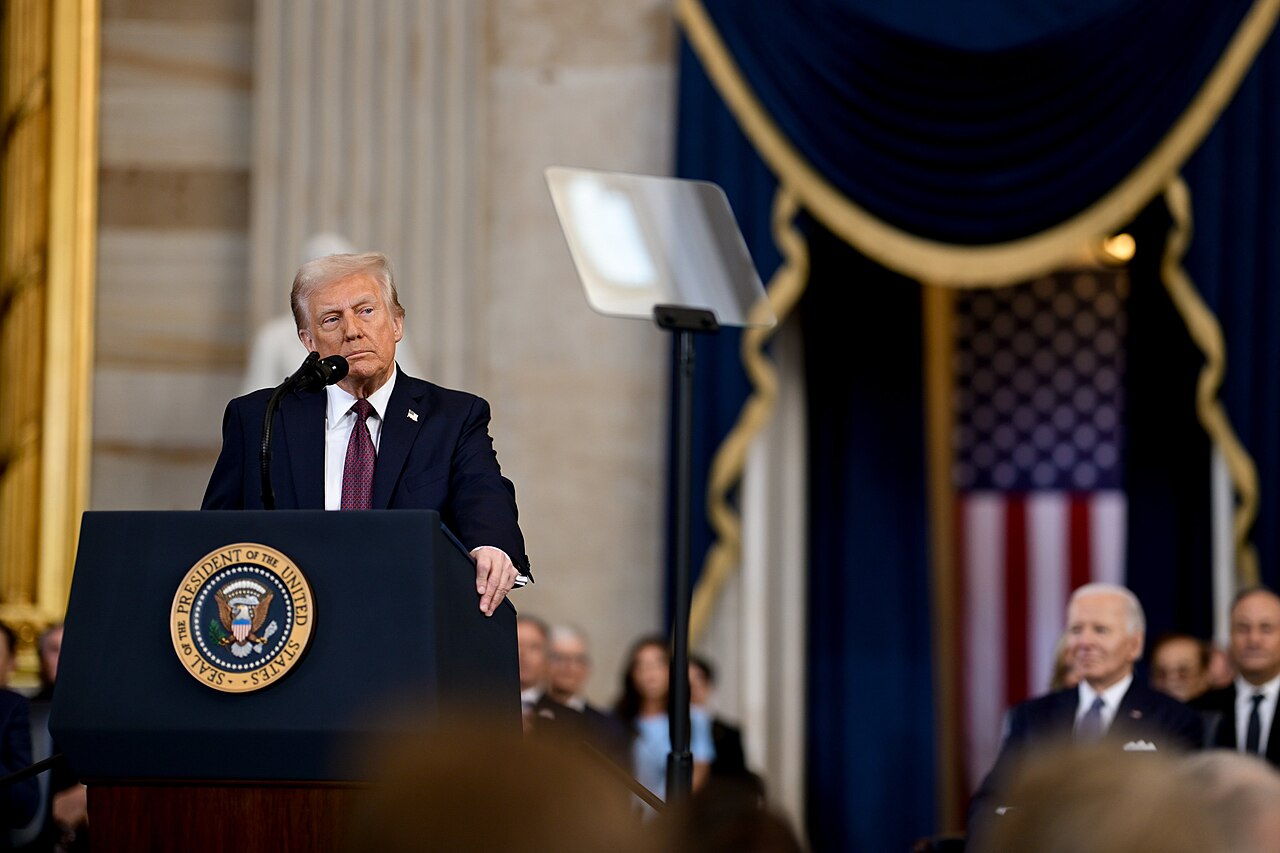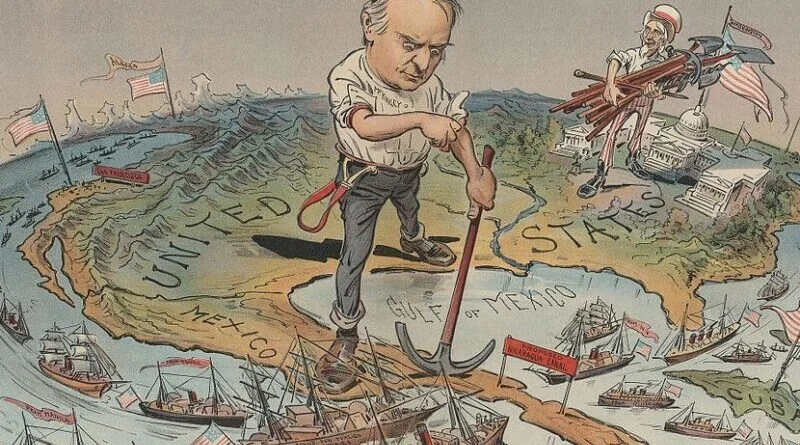
When Tucker Quit America
Tucker Carlson has simultaneously rejected the American political system as we have understood it from its founding to today, and sought to be politically engaged.
What has happened to Tucker? It’s a common question on the Right nowadays. Answers range from belief that he has reached an honest conviction that our entire political establishment is corrupt and/ or incapable of righting the ship, anger at having been pushed out at Fox, hatred of Trump, that foreigners are paying him, desire to gain market share on the fringe right, desire to take away and moderate listeners from extremist voices online, even demonic possession. (Yikes!)
Motivation might not be the most important question. It’s probably more important to understand the nature of the turn in Carlson’s mind. My conclusion is that Carlson seems to have given up on America and on American politics as they have been understood since the nation's founding.
I noticed this turn in his, generally well-received, speech at the 50th Anniversary Celebration of the Heritage Foundation. I was surprised not so much by what was included in the speech as by what was not included. Heritage’s mission, as noted on its website, is:
To formulate and promote conservative public policies based on the principles of free enterprise, limited government, individual freedom, traditional American values, and a strong national defense.
Tucker, as he noted in the speech, began his career with a stint at Heritage, and he was grateful for the help the organization gave him. Yet there was virtually no discussion of Heritage’s mission in his talk. Indeed, he seemed to dismiss those still focused on such core elements of American politics as behind the times. Similarly, there was no discussion of our tradition of advancing the agenda through the republican political process. I suppose there was some mention of traditional American values, but only in reference to how far some aspects of our culture have strayed from them.
In general, the speech sounded to me then, and reads to me now, as a cry of despair, and perhaps of outrage. We have failed. America is irredeemably corrupt. And it's folly to think we can have any real success if we try to work through the American political system.
Consider a few passages:
We have good people. We have terrible people in charge. And not just of our government, but of the institutions that I grew up in, the Episcopal church, my high school, I can just go on and on and on. They’re all run by weak people. . . .
And the idea at Heritage when I worked there wasn’t just that we’re fighting this war against the other side, of course, but it did not logically follow from that at Heritage that you could say whatever you wanted. Just because the other side was rotten didn’t mean you could be rotten.
They really hew to the highest standards of factual accuracy, to intellectual honesty. They really meant it. . . .
You look with disdain and sadness as you see people you know become quislings, you see them revealed as cowards, you see them going along with a new, new thing, which is clearly a poisonous thing, a silly thing, saying things they don’t believe because they want to keep their jobs. . .
And you’re so disappointed in people. You are. And you realize that the herd instinct is maybe the strongest instinct. I mean, it may be stronger than the hunger and sex instincts, actually. The instinct, which again, is inherent to be like everybody else and not to be cast out of the group, not to be shunned. . .
I don’t think we’re watching a debate over how to get to the best outcome. I think that’s completely wrong. . . .
Policy papers don’t account for it at all. If you have people who are saying, “I have an idea. Let’s castrate the next generation. Let’s sexually mutilate children.” I’m sorry, that’s not a political debate. What? That’s nothing to do with politics. . . .
None of this makes sense in conventional political terms. When people, or crowds of people, or the largest crowd of people at all, which is the federal government, the largest human organization in human history decide that the goal is to destroy things, destruction for its own sake, “Hey, let’s tear it down,” what you’re watching is not a political movement. It’s evil. . . .
I’m certainly not backing the Republican Party. I mean, ugh. . . .
They don’t want a debate. Those ideas won’t produce outcomes that any rational person would want under any circumstances. Those are manifestations of some larger force acting upon us. It’s just so obvious. It’s completely obvious.
And I think two things: One, we should say that and stop engaging in these totally fraudulent debates, where we are using the terms that we used in 1991 when I started at [The Heritage Foundation], as if maybe I could just win the debate if I marshaled more facts.
I’ve tried. That doesn’t work. And two, maybe we should all take just 10 minutes a day to say a prayer about it. . . . I’m coming to you from the most humble and lowly theological position you can. I’m literally an Episcopalian. And even I have concluded it might be worth taking just 10 minutes out of your busy schedule to say a prayer for the future, and I hope you will.
I apologize for the extensive excerpts. They give a flavor of the talk, and show what was and what was not the focus. Prayer is good for the soul. But when presented as the culmination and conclusion of Carlson’s speech, it presents itself as an alternative to politics and the work of citizenship, akin to Rod Dreher’s “Benedict Option.” Yet Tucker has no desire to retreat to an internal exile. Tucker, as I read his words, has rejected the American political system as we have understood it from its founding to today, and, at the same time, he has sought to be politically engaged.
At the heart of the founding, from the Declaration to the Constitution, and beyond, was the belief in human equality. What was that equality? It was the equality of men, or, as we would now say, humans. Unlike all the other animals, men can reason and speak. Hence, we, at least once we are adults, gain the right, even the duty, to participate in political discussions, debates, and policy making. That theme was a constant from the founding onward.
Looking at the ratification debates over the Constitution from his perch as our Minister in London, John Adams concluded his massive three volumes on constitutional design by declaring, “the conception of such an idea, and the deliberate union of so great and various a people in such a plan, is, without all partiality or prejudice, if not the greatest exertion of human understanding, the greatest single effort of national deliberation that the world has ever seen.”
Fast forward to the great crisis of the 1850s, as the Union hurtled toward Civil War. From the perspective of deliberation, the high point of this era was the Lincoln-Douglas debates, featuring the republic’s leading Senator, Stephen Douglas, and Abraham Lincoln, his rival for office. Back then, in the age of Clay, Webster, and Calhoun, who had all recently passed from the scene, the Senate often truly was the “world’s greatest deliberative body.” The reason why the slavery question was so fraught was that the very same equality that made slavery a wrong also meant that each of us has political rights. It would, therefore, be an attack on human equality for an individual or group to impose the end of slavery upon an unwilling public. The challenge was to end slavery in a manner consistent with government of, by, and for the people, and in accord with the rule of law. The French Revolution crashed and burned because they paid too little attention to that problem.
To reject deliberation and debate, and to reject the good faith effort at rational discussion of public policy, is to point back from the founding to the Old World, to a world in which the common citizen was seen as too stupid to be worth listening too, and when elites forced correct moral and political opinion in the common man. In such a world, established religions followed logically, as a necessary practice. It might also be true that Tucker was pointing to an unfortunate turn in public policy circles, which believes that only a small class of citizens are capable of contributing to our public policy debates. Our Covid policy makers certainly acted as if that’s how they see the American people. That, too, is a rejection of republican politics.
It's difficult, but what is the alternative? As John Adams wrote Jefferson in 1823, “I should like to see an election for a President in the British empire or in France or in Spain or in Prussia or Russia by way of experiment. We go on pretty well — for we use no other artillery than goose quills: & our ink is not so deleterious as langrage & grape.”
In times of intense conflict, when differing, even irreconcilable ideas of what it means to be human have risen to the surface, the democratic, perhaps I should call it the democratic-republican process of resolving issues by discussion, deliberation, and debate, is always threatened. There is often no principled area for compromise if one looks only at the narrow issue on the table. But if the question at stake is the fate of republican politics, a politics that respects the rights of men and the equality of citizens, then the goal must be to push our contestations back toward the political arena, and away from the streets. We sometimes forget that the alternative to deliberation and debate, even about fundamental issues of right and wrong, is violence and bloodshed. Mobbing and worse, are, across history, the way that out-groups show their disagreements with public policy.
Democratic republican politics is the arena of American greatness because it rests on what Lincoln described as “a truth applicable to all men at all times.” There’s an inescapable connection between Lincoln’s recognition of man’s unchanging nature and his recognition that slavery is an evil on one side, and the desire to protect government of, by, and for the people on the other.
I fear that many on the Right, in fighting the Left’s corruptions, have taken an anti-American turn, rejecting Make America Great Again for a post-American, or rather anti-American (and ante-American) view according to which America was never great, but which perhaps thinks it can be made great in their aristocratic hands. Or, perhaps, even worse, they think America is irredeemably corrupt and want to cash in while they can.
Despair is a sin. And the American republic endures. That being the case, a truly American conservatism is a tradition built upon the works of 1776 and 1787, and the 1860s, and points us back into the messy world of politics, rather than away from it. To reject politics is to conclude that George III was right and the patriots of 1776 were wrong.
Richard Samuelson is an Associate Professor of Government at Hillsdale College’s Washington, D.C., campus.
Politics
.webp)
Liberal Democracy Reexamined: Leo Strauss on Alexis de Tocqueville
This article explores Leo Strauss’s thoughts on Alexis de Tocqueville in his 1954 “Natural Right” course transcript.
%20(1).avif)
Long Distance Migration as a Two-Step Sorting Process: The Resettlement of Californians in Texas
Here we press the question of whether the well-documented stream of migrants relocating from California to Texas has been sufficient to alter the political complexion of the destination state.
%20(3).avif)
Who's That Knocking? A Study of the Strategic Choices Facing Large-Scale Grassroots Canvassing Efforts
Although there is a consensus that personalized forms of campaign outreach are more likely to be effective at either mobilizing or even persuading voters, there remains uncertainty about how campaigns should implement get-out-the-vote (GOTV) programs, especially at a truly expansive scale.

There's a Perception Gap With the U.S. Economy
As we approach another election cycle, it’s worth asking: what’s real, what’s political theater, and what does it all mean if Democrats regain control of the House?

International Law Is Holding Democracies Back
The United States should use this moment to argue for a different approach to the rules of war.

Trump purged America’s Leftist toxins. Now hubris will be his downfall
From ending DEI madness and net zero to securing the border, he’ll leave the US stronger. But his excesses are inciting a Left-wing backlash

California’s wealth tax tests the limits of progressive politics
Until the country finds a way to convince the average American that extreme wealth does not come at their expense, both the oligarchs and the heavily Democratic professional classes risk experiencing serious tax raids unseen for decades.

A Separate American Freedom Bloc?
Global trade is not ending anytime soon, but the trading partners involved are facing strategic realignment.

The Venezuela Symposium
Eight Latin American contributors discuss Venezuela's future and its wider consequences for the region.












